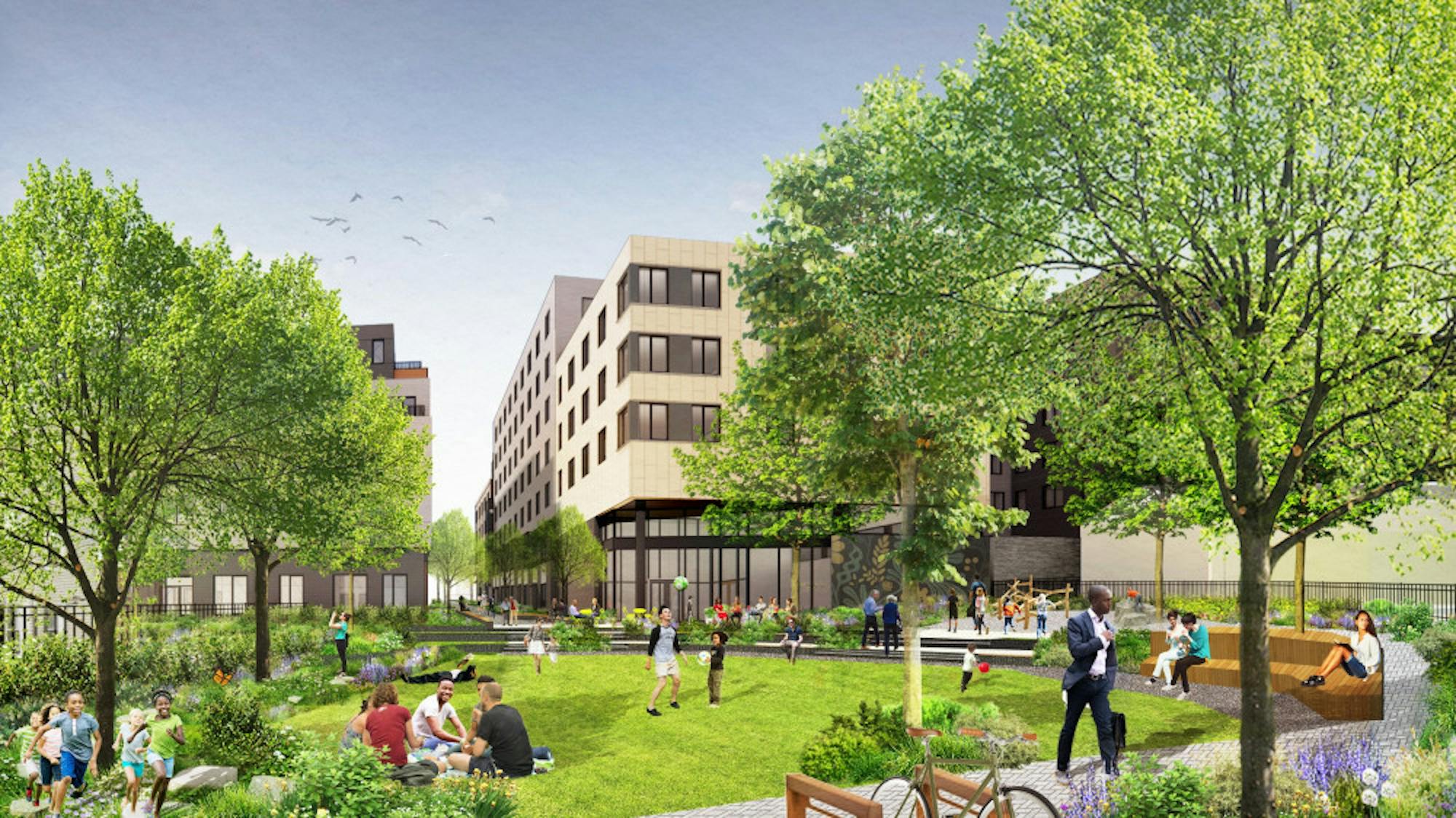Somerville’s Zoning Board of Appeals voted unanimously on Feb. 1 to approve permit requests for a new Winter Hill building complex, representing a major step towards the area’s long-desired revitalization. Located at 299 Broadway, the site of a closed Star Market, the development would consist of two mixed-use buildings, multiple retail spaces and a civic plaza, in addition to a pocket park along Seawall Street.
“[The site] has been a derelict, blighted space since 2008,” Somerville City Councilor-at-Large Jake Wilson said. “I'm really excited to see, honestly, anything happening there, but the fact that [there is] so much good in this project has me particularly excited.”

Development plans for 299 Broadway have passed through multiple iterations over the years. When a proposal to build a discount store at the site was shut down due to neighborhood pushback, the state of Massachusetts gave the city permission to pursue an urban renewal plan instead. Mark Development, a Boston and New York-based company, took the reins, aiming to convert the area into a traditional development project with underground parking.
Then came an obstacle: the discovery of asbestos in the site’s soil, making underground parking impossible.
“That forced us to pivot,” Scott Lombardi, vice president of development at Mark Development, said. “We could either leave the site and decide it was no longer going to be feasible to export all this asbestos-containing material … or get creative and try to do something different.”
Mark Development opted for the second route, partnering with Beacon Communities and RISE Together to release plans for a new, zero-parking building complex. Instead of on-site or underground parking, 299 Broadway will include over 330 bike parking spots and ample outdoor space, with the goal of appealing to residents who are not reliant on cars.
The developers’ revised vision for 299 Broadway also includes increased affordable housing. While the initial proposal contained 310 housing units, 20% of which would be affordable, the new plan includes 288 units, nearly half of which will be affordable.
“[299 Broadway] is a seismic shift from what we’re used to building, but it’s going to be a type of project that will appeal to people and hopefully be a trendsetter for what other people decide to do in the future when they have site logistical challenges like this one,” Lombardi said.
While the lack of parking at 299 Broadway will bring sustainability-related benefits, it has raised concern among neighbors who fear there will be increased demand for on-street parking. During the Feb. 1 meeting, the ZBA approved developers’ request to grant 78 parking permits to residents purchasing market-rate housing. Residents of affordable units are automatically eligible.
“As much as we all want a future [where] we’re a self-selecting group of people who choose to live car-free, we’re not quite there yet,” Wilson said. “I think it’s important … to recognize the sacrifice that some people are being asked to make.”
Stephen Moore, a neighbor of 299 Broadway, believes that the benefits of the project outweigh the parking inconveniences that may arise.
“I think this is an opportunity for the community to have a possible jewel in the middle of a working class neighborhood that can enhance the experiences of everybody, not just the people who will benefit by being residents of that development,” Moore said.
Aiming to reduce street traffic, developers have proposed a “Mobility Management Plan,” which was approved by the city. The plan includes measures to make it more feasible to live at 299 Broadway without a car, including giving residents Charlie Cards loaded with $90 and one-month Bluebike memberships. To fund the plan, residents who have parking permits will pay a $50 per month fee.
“I feel like [the developers] did a reasonable job of, through the specifics of the Mobility Management Plan, making sure that the pain will be as minimal as it can be,” Wilson said.
The developers of 299 Broadway have committed to getting Passive House certification: a building accreditation that focuses on reducing energy use for heating and cooling. Among the benefits of Passive House certification are reduced carbon emissions and high air quality.
“One of the great attributes of Passive House is, when you have requirements to ventilate and filter out particulates … you’re going to get fresher air, clean air, inside the apartments, and it’s recirculating so it’s not getting stagnant,” Moore, an architect who is consulting the developers on sustainability measures, explained. “From a standards and practices standpoint, Passive House is about the best you can do for buildings of any sort.”
Lombardi hopes to begin construction by 2024 and for residents to start moving in by 2026.
“My hope is that [299 Broadway will] make [the area] … a destination location,” Ward 4 City Councilor Jesse Clingan said. “Since we don’t have the extended sidewalks that other parts of the city have, that refuge of having that plaza where you might see a neighbor having an ice cream cone or a coffee and be able to catch up, in a way that isn’t like you’re beside the Indianapolis 500 … I just think it’s going to bring new life… new ideas [and] new enthusiasm.”






